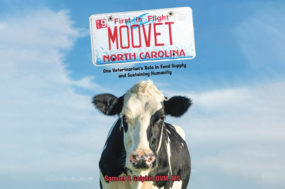Two months ago, a vote was taken in Arizona. Not a vote about legislators or representatives, but a vote that had to do with agriculture. Most people throughout the United States had very little knowledge or understanding about the measure, but its future implications are widespread.
I am referring to a little-known proposition that passed in Arizona. Officially known as Proposition 204, this piece of legislation passed with a 61 percent majority. Still not sure about this piece of law or how it might affect you someday? Let me elaborate a bit.
Proposition 204 was centered around specific practices in both the swine and veal animal husbandry areas. In essence, the initiative bans producers from using any type of housing that restricts full turning movement, for any reason, even if it is in the best interest and health of the animal and flies in the face of the most current university and industry research available today.
While the decision has already been made on this piece of legislation, I am here to make the case that there are some very important implications which stem from what happened just a few weeks ago in Arizona, implications that can reach well beyond what happened there. As a person who was born and raised in an agricultural family, I truly do fear what can happen to our industry.
Point 1 – Outside groups can greatly influence local opinions
The main supporters of Proposition 204 were not local, concerned citizens. They were (you guessed it) PETA, ALF, Farm Sanctuary and other animal rights organizations. While I firmly believe in laws that allow free speech and the ability to openly share ideas, I am concerned about the message portrayed about farming in America today.
For years I have watched the reality of what happens in and on today’s agricultural entities get drug through the mud by those that oppose any type of farm production. Yes, there are a few bad apples out there, but the huge majority of farmers across the United States work diligently to implement the best practices available. These people are as affected by this type of initiative as any other producer. It doesn’t matter who they were gunning for – everyone feels the results, and the lack of real information is, by far, the biggest culprit when it comes to voter outcomes.
Point 2 – The voice of agriculture is getting smaller
A similar proposition was passed in 2002 in Florida, which led to the demise of the small, productive swine operations there. In Arizona, there was time to get the message out to the people, but the voices of those in agriculture were greatly outgunned by those in favor of passing the proposition.
As time moves on, the voice of producers will continue to get smaller and smaller. This is compounded with the fact that the general voting population is becoming further removed from production agriculture. Without a strong, consistent message coming from producers across the country, it is only going to get worse, not better, for agriculture.
Point 3 – Does it really matter what happened in Arizona?
I am sure the producers in Arizona wish they had thought more about that question when they saw the same thing happen in Florida four years ago. And there again, I would pose these two questions to all producers today:
1) Do you produce or work with anything related to animal production?
2) Is there currently anything happening in your area that could be considered a threat to anyone or anything, now or in the future?
The answer to question one is obvious. The answer to question two might be a bit harder to answer, but I would ask you to think about this: Are you in a Western state where water is an issue, or are you currently using or thinking about using a GMO crop? Are nutrient management rules in your area under scrutiny? If the answer is “yes” to any of these, you might want to take a closer look at what is happening around you. Now is the time to work on these issues, not tomorrow. Just ask the families and farmers affected in Arizona.
I just hope we don’t look back in a few years and wonder what we missed. ANM
—Darren Olsen, Editor




